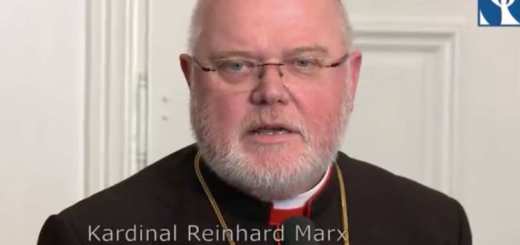Child abuse – Is Pope Francis going to bite the bullet?

(Curtsy – http://www.catholica.com.au/gc4/kt/013_kt_051115.php)
Pope Francis has been described as an enigma now by quite a few commentators, including Bishop Geoff Robinson in his most recent book. In this commentary, lawyer,Kieran Tapsell, puts the case that while Pope Francis's calls for mercy and compassion are greatly welcome in the world, he seems to have shown more mercy and compassion so far for protecting priests from facing prosecution by State authorities than for victims. To reverse this, Tapsell argues that Pope Francis needs to abolish the Pontifical Secret and order mandatory reporting of complaints of clerical abuse. Despite requests from various bishops conferences and even the United Nations to do that, so far Francis has refused. What prevents him biting the bullet and making the necessary change in Canon Law? If there is some impediment to such a change can he give the world an explanation as to why he will not make the change?
The Pope who is an enigma…
At the launch of his most recent book, 2015 Synod: The Crucial Questions: Divorce and Homosexuality, Bishop Geoffrey Robinson described Pope Francis as "an enigma". In some things there is a serious gap between what he preaches and what he does.
One example is his response of "Who am I to judge" when asked about gay couples and then his refusal to accept the appointment of Laurent Stefanini, an openly gay man, as France's ambassador to the Vatican.
Far more serious are his remarks about canon law in his recent annual address to the Roman Rota, where he emphasised the canonical tradition, but then stressed the centrality of mercy as being the very substance of the Gospel of Jesus.
Such sentiments are admirable when the Church is dealing with gay couples, the divorced and those who have strayed from doctrinal orthodoxy.
The greatest scandal since the Reformation…
But the centrality of mercy expressed through canon law towards clerics who have sexually abused children has been the cause of the greatest scandal to hit the Church since the Reformation. It could also be said that central to the Gospel of Jesus is the protection of children.
On the one hand, Francis condemns clericalism and its expressions in ceremonial pomp and luxurious living, yet he persistently maintains the very essence of clericalism that protects clergy sex abusers through canon law.
He has refused to abolish the pontifical secret in all cases of the sexual abuse of children and to provide for mandatory reporting under canon law, irrespective of whether or not the civil law requires it – something that has been requested of the Vatican since 1996 by the Irish, British, United States and Australian bishops, and more recently in 2014 by the United Nations Committees for the Rights of the Child, and Against Torture.
The tradition of the Church, from the 4th to the 19th century was that the sexual abuse of children is not just a sin punishable by eternal damnation in the next life, but a crime that has to be punished in this life by the minimum of imprisonment.
From the 12th century onwards, when the Church decided that physical forms of punishment should be carried out by the State rather than by itself, the decrees of four popes and four councils insisted that such priests should be handed over to the civil authorities to be punished.
The historical record shows that priest sex abusers of children were stripped of their status as priests, and handed over to the civil authorities who punished them with burning at the stake, beheading, garroting, whipping, being sent to the galleys, exile and imprisonment. While the crueller forms of these punishments have long disappeared in civil society, there is universal agreement today that imprisonment for child sex abusers is appropriate.
These Church decrees that required such clerics to be handed over to the civil authorities were abrogated by the 1917 Code of Canon Law, and then in 1922, Pope Pius XI issued Crimen Sollicitationis imposingthe secret of the Holy Office on all information about the sexual abuse of children by clerics obtained through the Church's canonical procedures.
That policy of secrecy was continued and expanded by every pope since 1922, and it continues to this day by the imposition of the pontifical secret by Pope Paul VI's 1974 Instruction Secreta Continere and byPope John Paul II's 2001 Motu Proprio, Sacramentorum Sanctitatis Tutela and in Pope Benedict XVI's expansion of the pontifical secret in 2010.

Pope Francis "could abolish the pontifical secret and impose mandatory reporting with the stroke of a pen." |
The seventh pope to break with the tradition?
It now looks as if Pope Francis is going to be the seventh pope to continue with a policy that protects clerics from State prosecution by the use of secrecy.
In his address in Philadelphia on 27 September 2015, Pope Francis said: "The crimes and sins of sexual abuse of minors cannot be kept secret any longer." Yet he is the one who is keeping it secret when he could abolish the pontifical secret and impose mandatory reporting with the stroke of a pen.
The very last canon in the 1983 Code of Canon Law provides that"the salvation of souls…must always be the supreme law of the Church." As Archbishop Hart of Melbourne explained to theVictorian Parliamentary Inquiry, the word "scandal" has a technical meaning in the Church, and it refers to the loss of faith because of the behaviour of its priests and religious. Loss of faith, in the Church's eyes, leads to the damnation of souls not their salvation.
The prime motivation behind the secrecy surrounding the sexual abuse of children was the avoidance of scandal, but it also showed mercy towards the perpetrators by protecting them from the civil law at a terrible cost to the lives of children. Quite apart from protecting clerics from the civil law, Pope Francis has not lifted a finger to change canon law that for the last one hundred years has handed out mercy in spades within the Church's internal disciplinary system.
The 1983 Code of Canon Law, like Crimen Sollicitationis before it, only allows dismissal through a canonical trial when attempts to reform the priest have failed.
Zero Tolerance???
Despite claims by Pope Benedict and Pope Francis that the Church now adopts "zero tolerance" towards the sexual abuse of children, the figures presented by Pope Francis's envoys to the United Nations show that its tolerance is not zero, but sixty six percent.
Less than one third of all priests guilty of the sexual abuse of children have been dismissed. The others have had restrictions placed on their ministry and have been told to live "a life of prayer and penance" in comfortable surroundings, supported by the Church. One would have thought that prison presents many more opportunities for a life of prayer and penance than monasteries or presbyteries.
Pope Francis's call for mercy would be more palatable if it were consistent. Nowhere has he suggested that non clerical child sexual abusers in the world should be punished by being allowed to live at home praying and doing penance.

















